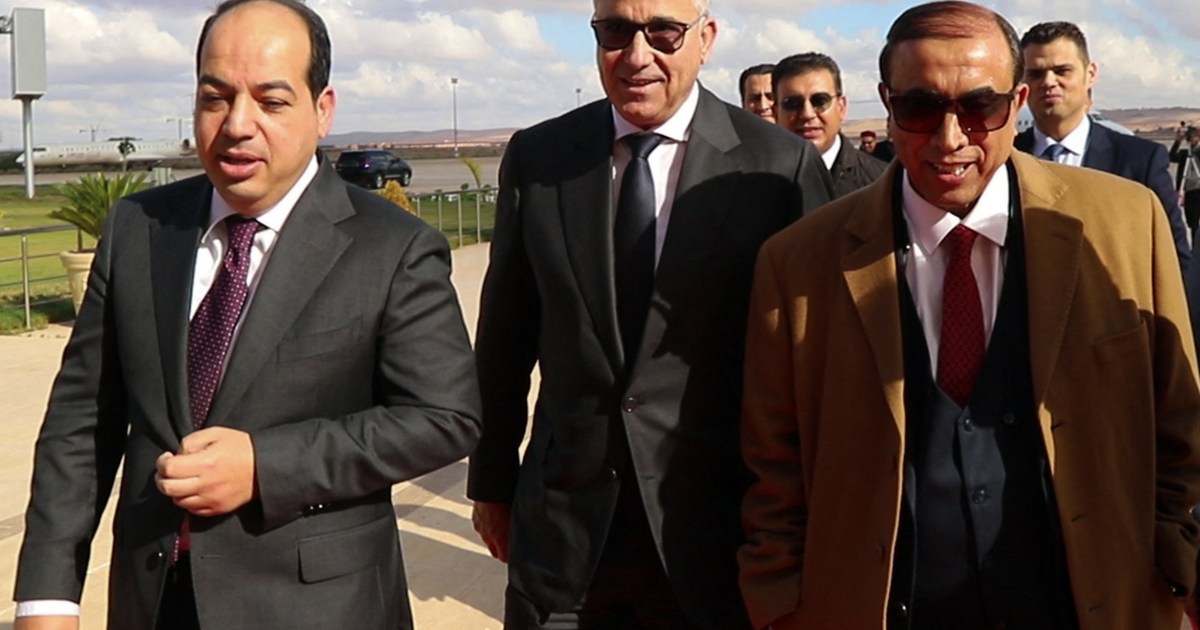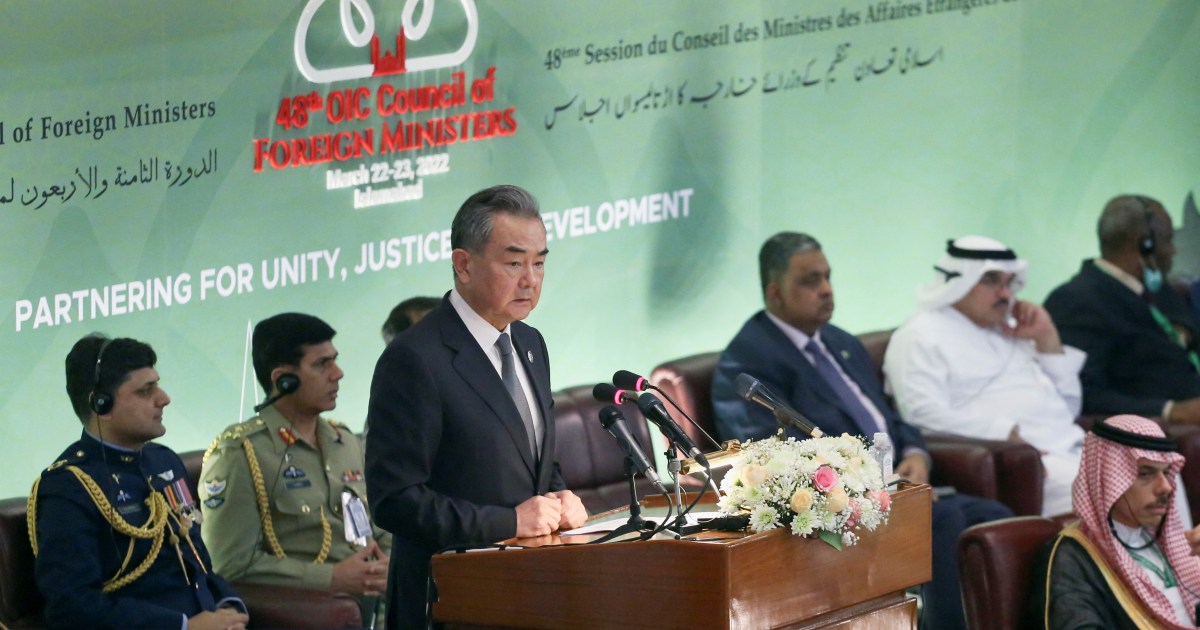Libya tensions rise as election all but set to be delayed | Elections News
Backroom talks continue as UN mission expresses concern over security situation in Tripoli after armed groups’ deployment.
Tensions are rising in Libya days before a presidential election that looks set to be postponed, with the United Nations’ mission in the country voicing concern about the security situation in the capital, Tripoli.
The head of Libya’s High National Electoral Commission (HNEC), in a document dated December 2020, ordered the dissolution of the electoral committees nationwide. The move that effectively postpones the first round of presidential polls, is due to take place on Friday, even though no such announcement has yet been formally made.
The news on Tuesday came as rival armed groups deployed in Tripoli, closed roads in the south of the capital using sandbags. Images posted online in the morning showed a tank and pick-up trucks mounted with machine guns in the Fornaj district.
“The current mobilization of forces affiliated with different groups creates tensions and increases the risk of clashes that could spiral into conflict,” the UN’s mission, known as UNSMIL said in a statement later on Tuesday, adding that all disagreements regarding political matters should be resolved through dialogue.
UNSMIL is concerned about the unfolding security situation in Tripoli. The current mobilization of forces affiliated with different groups creates tensions and increases the risk of clashes that could spiral into conflict.
???https://t.co/fahOSh3aP0 pic.twitter.com/Yl4K2Zc5tr— UNSMIL (@UNSMILibya) December 21, 2021
Meanwhile, schools and the University of Tripoli closed as a precaution but there were no gun battles, residents said. In the afternoon, roads in Tripoli that had been closed were reopened and fewer gunmen were seen on the streets, according to reports.
Armed groups had also deployed in Tripoli’s streets last week after the unity government dismissed Abdulbasit Marwan, a senior military official backed by several of the capital’s powerful armed groups.
Backroom talks
Libya’s presidential election is part of a UN-backed plan to end 10 years of chaos since a 2011 revolt that removed longtime ruler Muammar Gaddafi. But without any clear agreement on rules, and with bitter disputes over the eligibility of the main candidates, the process has stalled and cannot go ahead.
“It is becoming clear that the vote will be delayed, but there hasn’t been a government institution or any senior official that have been willing to announce the postponement,” said Al Jazeera’s Malik Traina, reporting from Tripoli, adding that the electoral commission and parliament have been disagreeing over who is responsible for such a decision.
Meanwhile early on Tuesday, two leading presidential candidates from western Libya, ex-Interior Minister Fathi Bashagha and former Deputy Prime Minister Ahmed Maiteeq, met Khalifa Haftar in Benghazi. Haftar is an eastern-based renegade military commander who is also seeking the presidency.
The content of their talks was not disclosed, but an adviser to Bashagha told the AFP news agency the reason for the visit was to “break down obstacles … and show that it is possible to unite”.
The meeting is the most prominent of several rounds of backroom talks over recent days between candidates, factions and foreign powers about delaying the vote and whether an interim government can meanwhile continue in power.
Those participating in the group meeting in Benghazi are aligned against the interim Prime Minister Abdul Hamid Dbeibah, who is another rival candidate.
Dbeibah had promised when he was appointed not to run for office. His opponents say he should not run in the election because he has been able to use state spending to attract votes.
Haftar’s candidacy is controversial in western areas after his 14-month assault on Tripoli from 2019-20, which destroyed much of the city. Another prominent candidate, Gaddafi’s son Saif al-Islam Gaddafi, is also unacceptable to many Libyans.




